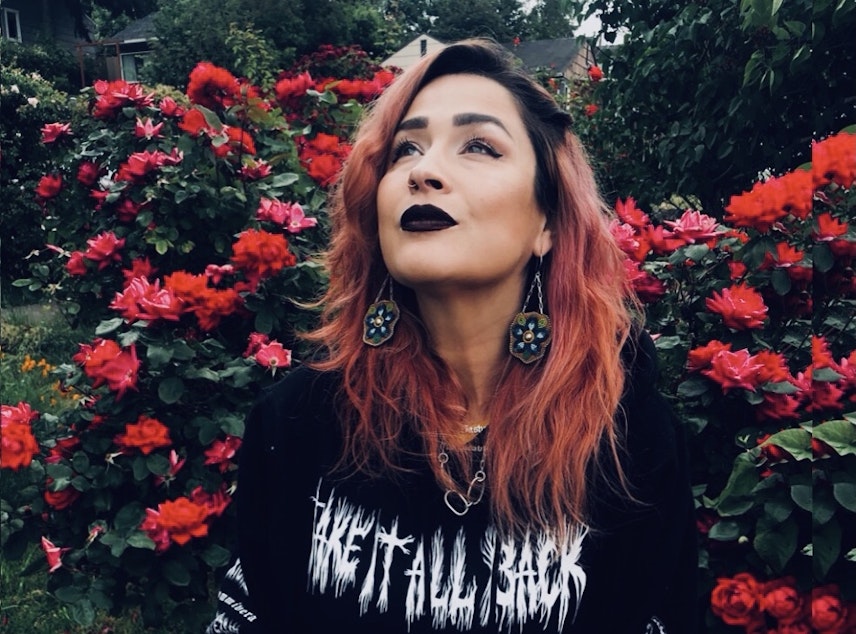This Coast Salish punk wants you to call her anything other than 'survivor'

When Sasha taqʷšəblu LaPointe set out to write her first memoir she was carrying on a family legacy of telling native stories. Her new book, Red Paint: The Ancestral Autobiography of a Coast Salish Punk, weaves together her own life with the stories of her ancestors. But Red Paint is not just a story of generational trauma, it's about strength.
Sasha taqʷšəblu LaPointe did not want to write a story about her life that put survivors in a box.
"Just because we've experienced trauma, it does not have to be what defines us" LaPointe said. "It's certainly not what defines me."
Red Paint shows readers some of LaPointe's darkest and most traumatic moments as a child and adult. She has survived sexual assault, homelessness, a miscarriage, and more.
LaPointe says putting trauma onto the page can be a risk. She says survivors may be seen as damaged just because they have endured harm and violence. This, she underscores is harmful. It does not allow readers to see survivors in their full complexity.
Sasha comes from a line of native women who have endured and survived. She said while writing the book excavating the history and memories of her family wore on her, but she wants to celebrate generational healing.
One of LaPointe's ancestors, Comptia Koholowish, was a Coast Salish woman in the area near what is now Astoria. LaPointe explained that Comptia survived the smallpox epidemic, and later married one of the Scottish settlers.
LaPointe said that Comptia was made to live in the back of the house and never allowed in the main house. Growing up she found these stories deeply unsettling.
However, as she began to writing her book, she wanted to fold in Comptia's story as well. She wanted to draw from her ancestral history to show how she and her ancestors got through.
LaPointe remember going Ilwaco, Wash. near Comptia's home several times. She sifted through histories and locations to better understand her relative's lived experience.
One night, while writing Red Paint LaPointe was flooded with anger. She remembers sitting in Ilwaco worried that the way she told her story and the story of her ancestors would frame her as, "the girl who writes about the really heavy stuff."
LaPointe is tired of the ways white people have decided language for native experiences. And so, she wrote how she wants to be seen.
"I no longer wish to be called resilient," LaPointe says reading an excerpt from Red Paint. "Call me reckless, impatient and emotional. Even indigenous. Call me anything other than survivor. I am so many more things than brave."
An excerpt from Red Paint: The Ancestral Autobiography of a Coast Salish Punk. You can find this passage on page 201:
"I was tired of being brave. I would rather be something else. Care free? An ageing millennial. Someone who enjoys listening to the Cranberries and Cyndi Lauper on road trips down the coast. Call me a writer call me a riot grrrl. Call me Coast Salish or poet. Call me a girl who loves Nick Cave, and night swimming, and ramen, and old Bikini Kill records. I no longer wish to be called resilient. Call me reckless, impatient and emotional. Even indigenous. Call me anything other than survivor. I am so many more things than brave."
Soundside Host Libby Denkmann spoke with Sasha taqʷšəblu LaPointe about her new memoir Red Paint: The Ancestral Autobiography of a Coast Salish Punk. You can listen to the full interview above.





